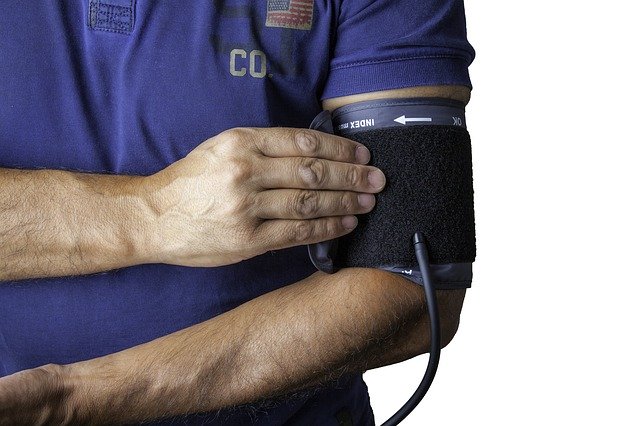High blood pressure, also called hypertension, occurs when the force of your blood pushing against the walls of your blood vessels is consistently too high. It’s often referred to as the “silent killer” because in many cases, someone with this condition doesn’t show any warning signs, so they may not know they have it.
Statistics in the U.S.
Approximately 67 million American adults from all backgrounds have high blood pressure. This is equal to about 31 percent of the population. This is not only problematic for the health of individuals, but also for national healthcare costs.
Key Facts:
- Hypertension costs the U.S. $47.5 billion each year.
- For people younger than 45, it affects more men than women.
- For people 65 and older, it affects more women than men.
- African Americans develop high blood pressure more often, and at an earlier age, than Caucasians and Hispanics do.
- More African American women than men have high blood pressure.
Ways to Lower Your Blood Pressure
Thankfully, there are many ways to lower high blood pressure and improve heart health. Many of these methods can also help with weight-loss because high blood pressure, excess weight and obesity are all closely related. In fact, your blood pressure rises as your body weight increases.
Manage Your Weight
One third of all hypertension cases are related to obesity. Excess fat, especially in the abdomen, causes strain on your blood vessels. However, you don’t need to lose tremendous amounts of weight to see a difference in your blood pressure. A modest 5-10 percent of your weight can be a huge help, and even losing two to three pounds can lead to small decreases.
Take Nutrition and Exercise Seriously
Beyond weight-loss, eating a healthy diet and exercising often are extremely beneficial. Foods low in saturated fat, cholesterol and sodium are key. Research also shows that boosting your Potassium can lessen the effects of sodium on your blood pressure. Fruits, vegetables, whole grains, lean meats and low-fat dairy are all good options, although this will depend on your personal food preferences and eating plan that you have established with your doctor.
Regular physical activity can also help lower your blood pressure. However, this won’t happen without consistency. Aim for at least 150 minutes/week or 30 minutes/day most of the week doing aerobic exercises and strength training.
Quit Smoking
Cigarette smoking raises blood pressure. Nicotine intake not only increases the work your heart has to do to pump blood, but it also puts stress on your lungs. Nicotine also narrows your arteries and hardens their walls, and it makes your blood more likely to clot.
Manage Your Stress
When you’re stressed, your body releases hormones that increase your blood pressure by causing your heart to beat faster and your blood vessels to narrow. If you are stressed on a regular basis, this has a long-term effect on your heart and entire cardiovascular system.
To help manage stress, remember to make time to relax and do activities you enjoy. Avoid situations that trigger you to have an emotional response such as going out during rush hour or meeting up with someone who makes you uncomfortable. You can also work with a mental health professional to learn cognitive strategies for managing your stress.
Monitor it Regularly
You don’t have to wait until your next health exam to have your blood pressure checked. If you are worried about it, you may want to invest in a personal tracker that will let you check it every day. These typically range from $30 – $100. Many grocery stores and pharmacies also have sit-in machines that let you monitor blood pressure as well as heart rate, weight and your risk for diabetes.
Consult with Your Healthcare Provider
That being said, your healthcare provider can be a great source of help for learning to manage your blood pressure. They can track the numbers over time to help you develop a treatment plan that works. In addition to offering advice about behavioral strategies you can take, they may prescribe medication until you have lowered it enough to get it under control.
Want more information about blood pressure? Check-out this Fact Sheet from the Obesity Action Coalition, Founder of the Your Weight Matters Campaign.






